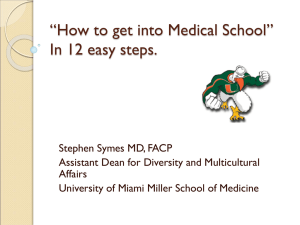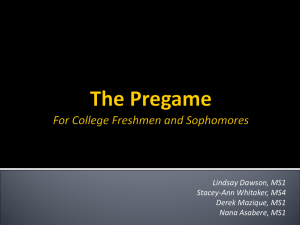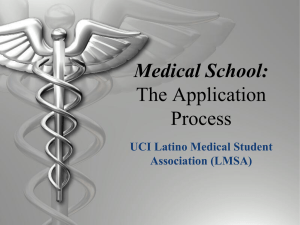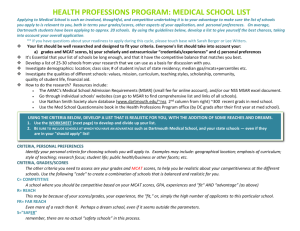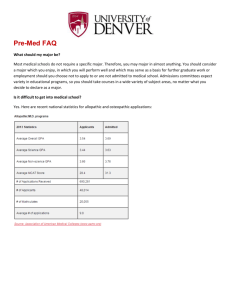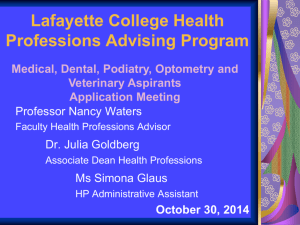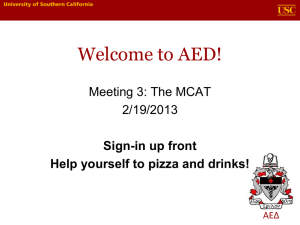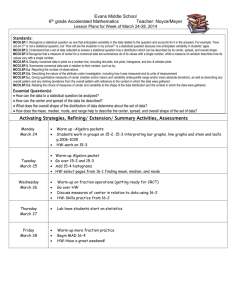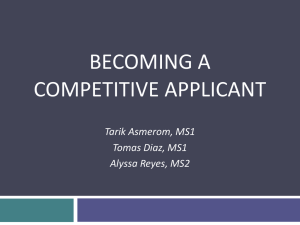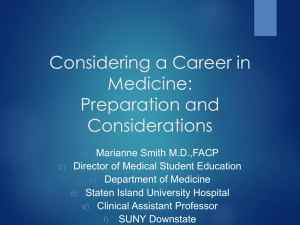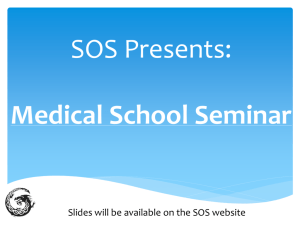Premed Tips & Advice
advertisement
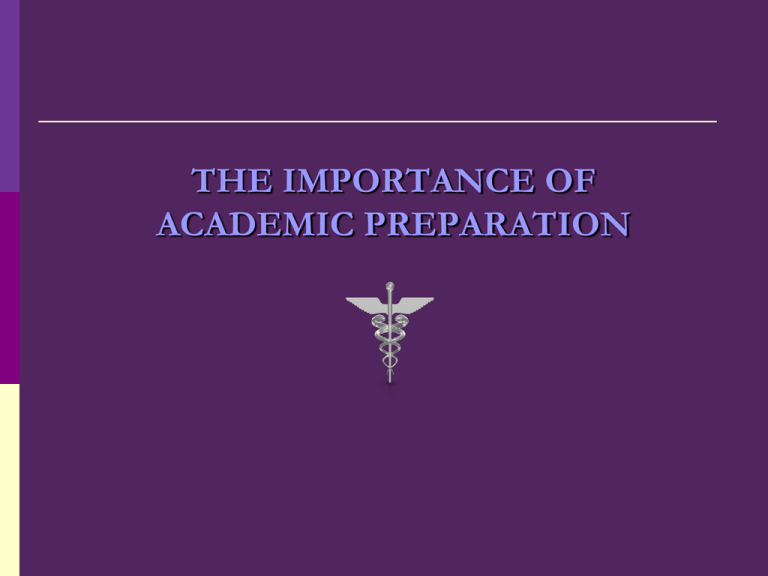
THE IMPORTANCE OF ACADEMIC PREPARATION Medicine Needs YOU … African Americans, Latinos/as, and Native Americans comprise 25 percent of the U.S. population, but only 12 percent of US medical student graduates and only 6 percent of physicians in practice... taken from http://www.AspiringDocs.org So we’re offering our advice in hopes that you will be able to join the ranks and thereby increase the percentages. Important Considerations: There is no magic formula for getting into medical school. We, Penn Med students, didn’t have an identical journey to medical school. How to Get Ready for the Medical School Application Process Rule #1: Decide to devote a significant time commitment to preparing for medical school Rule #2: Research national medical school acceptance data based upon GPA and MCAT scores Rule #3: Review academic qualifications, curriculum, first year class profile and demographics of medical schools which interest you Rule #4: Seek advise from those well-versed in the medical school application process Rule #5: Develop your plan for success Don’t Be Afraid to Ask for Help Confer with premed advisors, faculty mentors, and medical students who can support you through the medical school preparation process. Attend a medical school recruitment fair to learn from representatives about their schools http://www.aamc.org/calendar/careerfairs The MSAR aka Your Best Friend The Medical School Admissions Requirements (MSAR) profiles ever medical school in the US, Canada Check the MSAR well before applying to see what that school’s numbers are, their requirements, and their curricula For example, more and more schools require biochemistry, and same require two semesters of calculus Another Essential Text: MOUSMS * Review Minority Student Opportunities in US Medical Schools (MOUSMS) – learn about recruitment, applicant and matriculant data by gender, race and ethnicity; summer programs, educational partnerships, etc. My Credentials I am a wonderful, amazing person who rescued children from burning houses built 50 houses with my bare hands by myself for 50 different families volunteered in the ER holds leadership positions in 10 different organizations it doesn’t matter that I have a 2.9 GPA and a 25 MCAT score, right??? Sorry, It Does Matter Don’t bank on being the outlier case It’s stressful to take that risk (both financially and emotionally) No one will see how wonderful you are unless your numbers get by the screening THE NUMBERS The Numbers Medical School Admission Committees WILL NOT read every applicant’s personal statement and the rest of the application. Every school has to screen its applications to reduce the number of applications they actually have to read Once the screening process is done, then they start reading the applications What Do They Screen? GPA MCAT (Medical School Admissions Test) Fact and Figures https://www.aamc.org/data/facts/applicantmatriculant/ Table 19: MCAT scores and GPA’s for Applicants and Matriculants to US Medical Schools by Race and Ethnicity, 2009 Calculating Your Chances: Applicant Pool and Matriculants, 2008-2010 (taken from Table 24 AAMC Facts and Figures- https://www.aamc.org/data/facts/applicationt/matriculant) MCAT GPA: 2.802.99 18-20 Acceptees 21-23 24-26 27-29 30-32 33-35 36-38 39-45 17 56 89 65 33 8 . . Applicants 216 259 220 118 51 13 . . Acceptance Rate 2.7% 6.3% 21.4% 26.3% 36.8% 50.0% . . For example, if you have a 2.9 and a 25 total MCAT… 2009-2010 Penn Med URM Median Applicant Pool and Matriculants URM Applicants GPA Science All Other Overall MCAT VR PS BS WS 2009/2010 3.48 3.67 3.48 2009/2010 9.0 10.0 10.0 P URM First Year Matriculants GPA Science All Other Overall MCAT VR PS BS WS 2010 3.68 3.77 3.71 2010 11.0 12.0 12.0 Q Max GPA 4.0 Max MCAT 45 T (15 each section) Questions? 2008 and 2009 Coordinator: Amanda Crichlow, MS4 - crichlow@mail.med.upenn.edu 2010 Coordinators: Juron Foreman, MS4 - juronsf@mail.med.upenn.edu Derek Mazique, MS1- mazique@mail.med.upenn.edu Alyssa Reyes, MS1 - alreyes@mail.med.upenn.edu GOOD LUCK!
